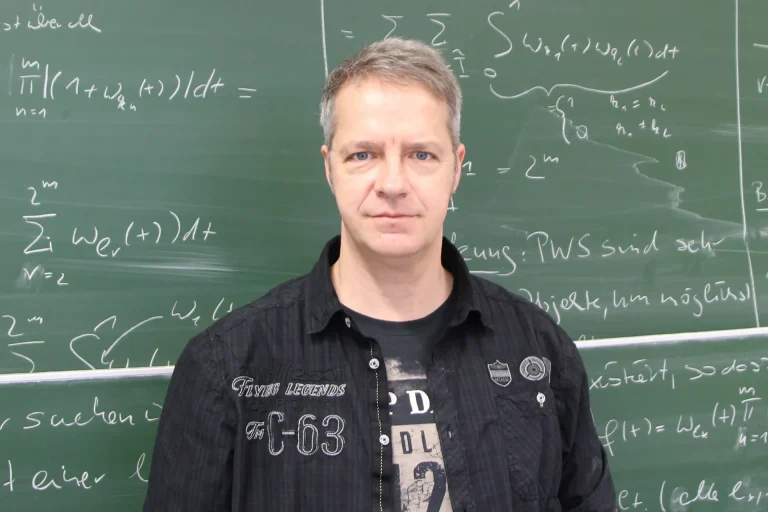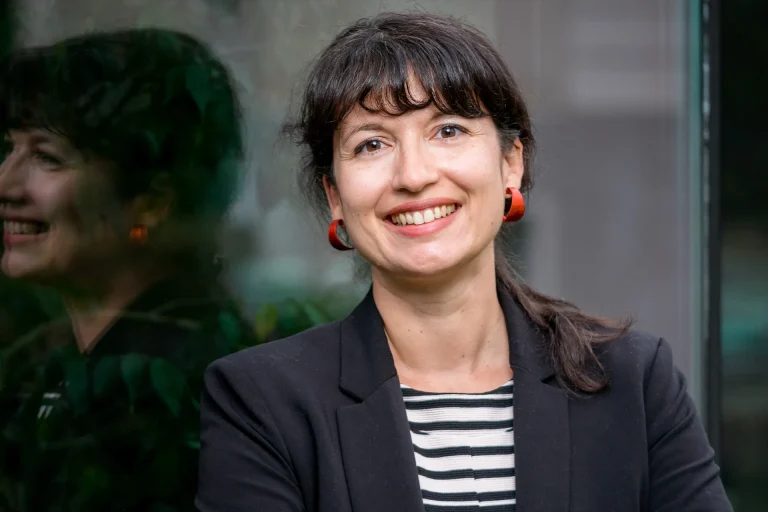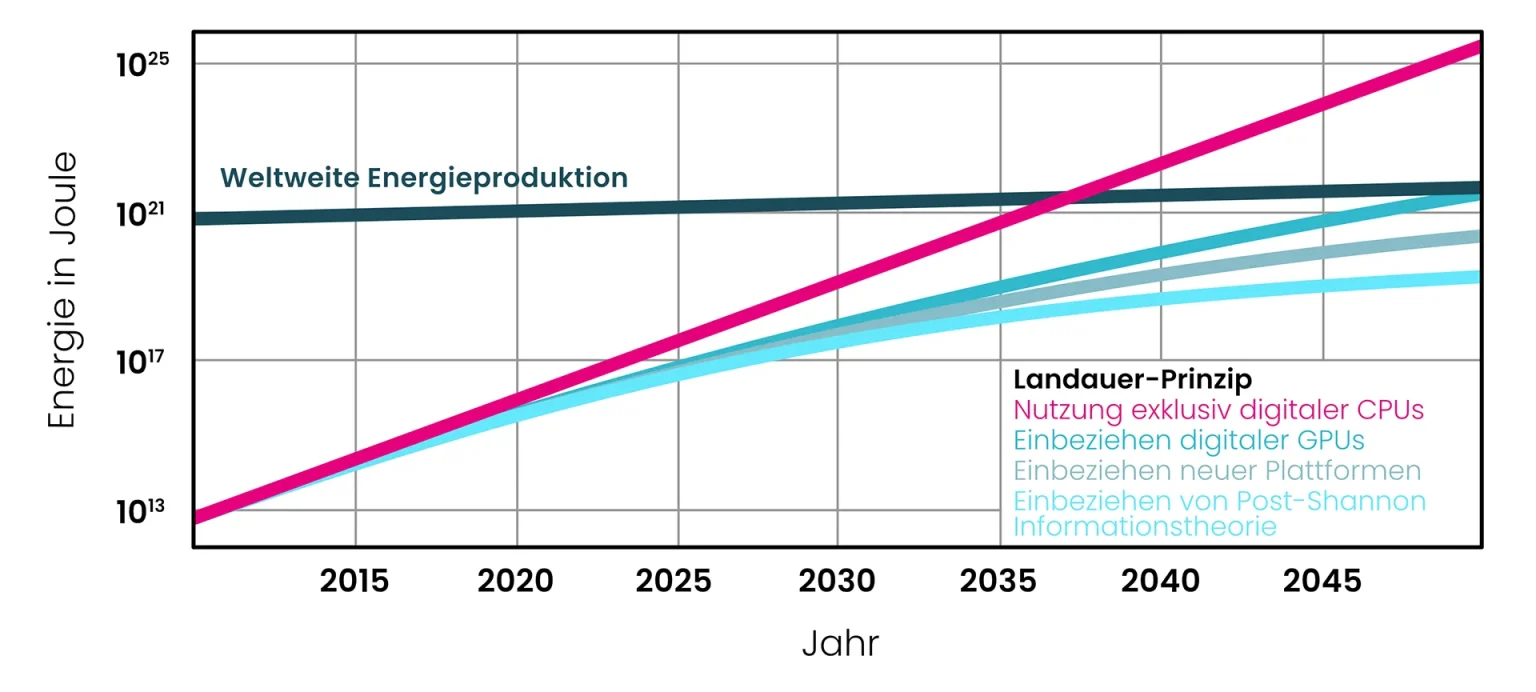



Prof. Holger Boche (TUM) is working on computing and information theory in order to reduce energy consumption despite increasing data volumes: “The key objective is to significantly reduce energy consumption for computing despite the exponentially increasing data volumes observed in computing and AI applications.”
Prof. Stefanie Speidel (TU Dresden) is focusing on the practical implementation of theoretical concepts in AI medical robotics: “How can we transfer the theoretical concepts in combination with new hardware to a specific use case in the field of AI medical robotics?“.
Prof. Frank Fitzek (TU Dresden) is developing new, energy-saving concepts for AI.
He sees an urgent need to reduce the energy consumption of future AI methods.
“Without GAIn methods, the energy available worldwide could be consumed by AI alone. Our approach is to use alternatives to digital computing for AI.”
GAIn bundles competencies
The topics of AI and robotics are complex and require collective efforts.
The sustainable added value of these technologies can only be achieved through the cooperation of experts with complementary fields of experience.
Through the close cooperation between Bavaria and Saxony on the topic of AI and robotics and resource-saving predictability, the two states are aiming for strong location development.
The GAIn project is being funded with a total of 6 million euros by the Bavarian State Ministry of Science and the Arts and the Saxon State Ministry of Science, Culture and Tourism.
You can find the official press release on the project launch here: https://www.stmwk.bayern.de/pressemitteilung/12814/nr-63-vom-06-08-2024.html



